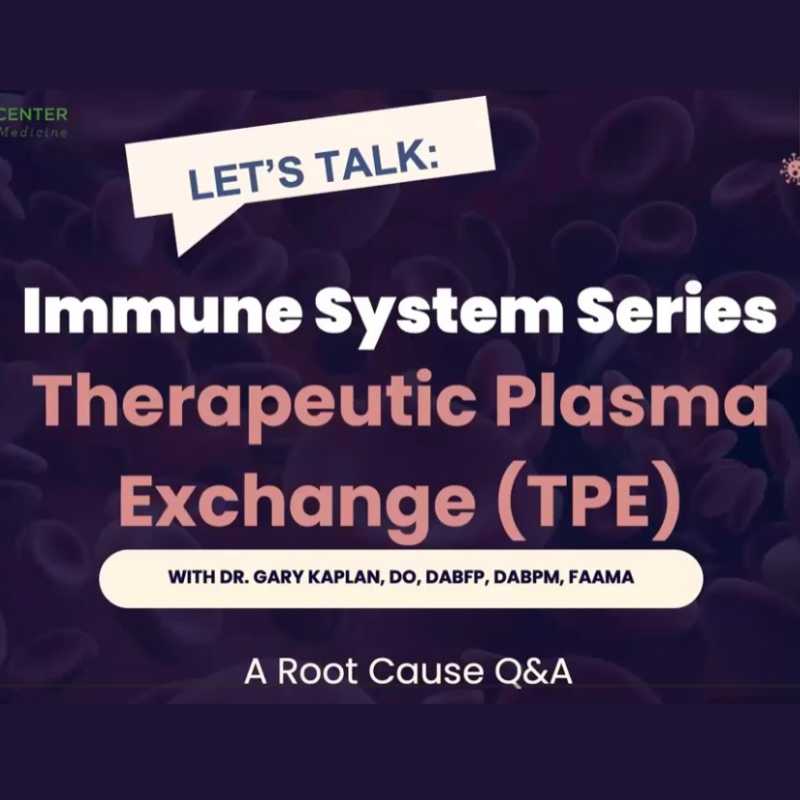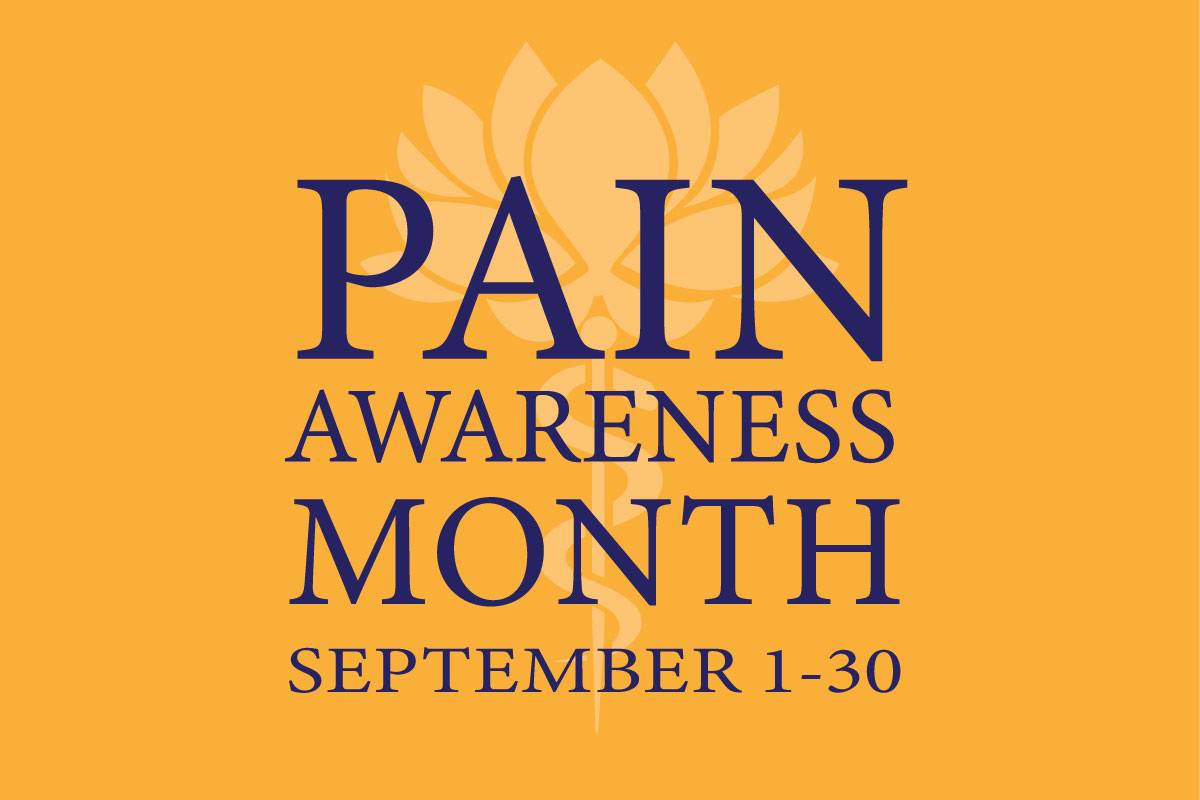
5 Ways We Can Keep Your Immune System Strong
December 10, 2025/by Kaplan Center
Want to Take Your Workout to the Next Level Next Year? These Tips Can Help
December 8, 2025/by Kaplan Center
Dr. Kaplan’s Dos and Don’ts of the Holiday Season
December 3, 2025/by Kaplan Center
Let’s Talk Webinar – A Root Cause Q&A
December 2, 2025/by Kaplan Center
Navigating Holiday Meals with Gut Issues: Simple Tips for a Comfortable Season
December 1, 2025/by Chardonée Donald, MS, CBHS, CHN, CNS, LDN
Craniosacral Therapy for TMJ | Say Goodbye to the Daily Grind
November 19, 2025/by Patricia Alomar, M.S., P.T.
From Compassionate Care to Personal Healing: A Letter to My Patients
November 18, 2025/by Kaplan Center
8 Steps to a Healthier Gut—and a Longer, Healthier Life
November 18, 2025/by Kaplan Center
Mid-Life Irritability & Fatigue Improved by Hormonal Balancing
November 13, 2025/by Lisa Lilienfield, MD
From Challenges to Change: Dr. Kaplan on Healthcare’s Biggest Challenges
October 29, 2025/by Kaplan Center
Overlooked Dangers of Mold Exposure and How to Stay Safe – Dr. Kaplan Talks to WUSA9
October 27, 2025/by Kaplan Center
Let’s ‘Fall’ Into Wellness: A Nutritionist-Approved Immune-Boosting Recipe for Cold and Flu Season
October 13, 2025/by Chardonée Donald, MS, CBHS, CHN, CNS, LDN
PANS/PANDAS – When Sudden Symptoms Signal Something More
October 9, 2025/by Kaplan Center
Beating Burnout, A Nutritionist’s Perspective
October 1, 2025/by Chardonée Donald, MS, CBHS, CHN, CNS, LDN
3 Things That Can Happen After Stopping GLP-1s
September 11, 2025/by Chardonée Donald, MS, CBHS, CHN, CNS, LDN
What Families Need to Know About COVID and Flu Season
September 3, 2025/by Kaplan Center
September is Pain Awareness Month
September 1, 2025/by Kaplan Center
Dr. Kaplan Spoke to Northern Virginia Magazine About COVID, Flu, and Immunity — Here’s What You Should Know
August 14, 2025/by Kaplan Center
“Why Do I Feel Like Crap?”: The Overlap Between Long COVID and Perimenopause
July 30, 2025/by Kaplan Center
Why People Are Turning to EMDR (and Why You Might Want to Too)
July 23, 2025/by Kaplan CenterAre you looking to improve your overall wellness?
Personalized care you can trust.
Our integrative, non-surgical treatment approach is highly successful in maintaining wellness and also treating chronic pain and illness. For more than 30 years, we have delivered superior, cutting-edge health care in the Washington, DC area.
QuickLinks
Contact Information
Tel: 703-532-4892
Fax: 703-237-3105
6829 Elm Street, Suite 300
McLean, Virginia 22101
Map It
Hours of Operation
Mon – Thu : 8 am – 5 pm, ET
Fri : 8 am – 12 pm, ET
Acupuncture for Headaches: A Holistic Approach to Lasting Relief
/in Migraine, Treatments/by Rebecca Berkson, L.Ac, Dipl.OMNearly everyone experiences a headache at some point, but for those who suffer from frequent or chronic headaches, the impact can be truly debilitating. Whether it’s the dull, persistent ache of a tension headache, the intense throbbing of a migraine, or pain associated with an underlying health condition, identifying the root cause is essential for lasting relief.
Headaches can stem from a wide range of factors, including stress, hormonal imbalances, musculoskeletal tension, neurological sensitivities, or illness. That’s why an accurate and comprehensive diagnosis is so important. At the Kaplan Center, we reject the notion that you simply have to “live with it.” Our team is committed to helping patients identify the underlying causes of their headaches and develop personalized, effective treatment plans.
One highly effective and increasingly popular treatment we offer is acupuncture. This ancient therapy, rooted in Traditional Chinese Medicine and practiced for over 2,000 years, is now backed by modern scientific research for its effectiveness in managing and preventing various types of headaches.
The Science Behind Acupuncture
Recent clinical studies, including those published in prestigious medical journals such as The Cochrane Database of Systematic Reviews and JAMA Internal Medicine, show that acupuncture can significantly reduce the frequency, duration, and intensity of migraines and tension-type headaches. These improvements are often sustained over time and can be more effective than medication alone, without the side effects commonly associated with pharmaceuticals.
Acupuncture is thought to work by stimulating specific points on the body (called acupoints) to regulate the central nervous system, promote the release of endorphins and serotonin, reduce inflammation, improve blood flow, and balance the body’s stress response. For headache sufferers, this means more than temporary relief—it can lead to fewer attacks, better sleep, and improved overall well-being.
In one major study, those who received true acupuncture had significantly better outcomes than those receiving standard care or sham (placebo) acupuncture. These findings have led organizations such as the World Health Organization and the American Migraine Foundation to recognize acupuncture as a viable, evidence-based treatment option.
How We Can Help
Our acupuncture treatments are delivered by highly trained practitioners in a calming, patient-centered environment. Most patients find the sessions relaxing and even rejuvenating. Over time, many report dramatic improvements not only in their headache patterns but also in their energy levels, mood, sleep, and stress resilience.
If you or someone you love is living with chronic headaches, know that lasting relief is possible. Call the Kaplan Center today—703-532-4892—to schedule your appointment and take the first step toward a pain-free, empowered future.
We are here for you, and we want to help.
Our goal is to return you to optimal health as soon as possible. To schedule an appointment please call: 703-532-4892 x2
References
Jena, S., Witt, C. M., Brinkhaus, B., Wegscheider, K., & Willich, S. N. (2008). Acupuncture in patients with headache. Cephalalgia, 28(9), 969–979.
Linde, K., Allais, G., Brinkhaus, B., Manheimer, E., Vickers, A., & White, A. R. (2016). Acupuncture for the prevention of tension-type headache. Cochrane Database of Systematic Reviews, (4), CD007587.
Vickers, A. J., Vertosick, E. A., Lewith, G., MacPherson, H., Foster, N. E., Sherman, K. J., … & Linde, K. (2018). Acupuncture for chronic pain: Update of an individual patient data meta-analysis. The Journal of Pain, 19(5), 455–474.
World Health Organization. (2002). Acupuncture: Review and analysis of reports on controlled clinical trials.
Zhao, L., Chen, J., Li, Y., Sun, X., Chang, X., Zheng, H., … & Liang, F. (2017). The long-term effect of acupuncture for migraine prophylaxis: A randomized clinical trial. JAMA Internal Medicine, 177(4), 508–515.
Ferritin: More Than Iron—A Diagnostic Power Tool
/in Inflammation/by Kaplan CenterFerritin often hides in plain sight on lab reports. But if we had to pick a favorite lab value—it would be this one. Why? Because ferritin is a multitasker. It’s one of the few lab values that offers insights into both iron metabolism and inflammation—making it a subtle but powerful indicator of what’s going on beneath the surface.
Ferritin 101: More Than Just an Iron Marker
Ferritin is often billed as a marker of iron stores. True! But that’s like saying your dog is just a pet—it’s also a security guard, emotional support system, and leftover vacuum.
Ferritin also acts as an acute phase reactant, meaning it can spike in response to inflammation. That dual personality makes it incredibly useful—and sometimes a little tricky—in clinical practice.
Let’s look at two very different patients whose ferritin levels pointed us in two very different diagnostic directions.
Case One: The 46-Year-Old Woman with Chronic Fatigue
She came to our clinic with all-too-familiar symptoms: relentless fatigue, poor sleep, and periods that could qualify as an endurance event—six days, heavy every month. A CBC was done elsewhere. Her hemoglobin? Normal. Verdict? “You’re fine.”
But at the Kaplan Center, we don’t settle for “fine.”
We dug deeper. Her ferritin was a level nine. Single digits. Yikes. We aim for ferritin levels above 50 ng/mL for optimal energy, cognitive function, and restorative sleep.
What’s tricky is that her hemoglobin was still normal—because the body was borrowing from its iron reserves to keep the ‘checking account’ looking normal. But her ‘savings account’—her ferritin—was very low. Like someone covering bills with a dwindling emergency fund, she was running on borrowed resilience. Eventually, those reserves dry up—and that’s when symptoms like fatigue, disrupted sleep, and poor stress tolerance start showing up loud and clear.
Her WatchPAT sleep study also showed no sleep apnea, but she had frequent awakenings, poor sleep efficiency, and trouble maintaining deep sleep. While ferritin doesn’t control sleep stages directly, low iron stores are known to impair energy production, dopamine synthesis, and thermoregulation—all of which can contribute to non-restorative sleep.
Iron isn’t just about oxygen transport. It’s about mitochondrial health, dopamine production, and helping your brain power down at night. So if your labs look “normal” but you feel anything but normal, find someone who will look beyond the surface.
Case Two: The 25-Year-Old Man with Long COVID
He was a healthy athlete until a tick-borne illness and COVID knocked him flat. Now? Crushing fatigue, post-exertional malaise, and brain fog. He had headaches and saw strange visual patterns. His ferritin level came back at 144 ng/mL.
At first, you might think, “Great iron stores!” But not so fast.
In his case, the elevated ferritin was less about iron, more about inflammation. Ferritin is the body’s way of waving a red flag: neuroinflammation ahead. Using the Kaplan Method™, alongside specialized testing, we started him on a personalized comprehensive plan to regain his health so he could return to playing pickleball.
High ferritin can reflect inflammatory stress—something we often see in Long COVID, autoimmune conditions, and chronic infections. It’s part of the body’s acute phase response, kind of like sending in the fire trucks whether it’s a campfire or a five-alarm blaze.
Questions? Give Us a Call!
703-532-4892 x2
A Word on Teens, Ferritin & Cognitive Performance
Here’s another reason we love ferritin: it has the power to improve a teen’s cognitive function, academic outcomes, and even self-esteem—especially in adolescent girls (who are recently started menstruating). Most pediatricians only check hemoglobin level, not ferritin- so this is missed.
In the U.S., up to 40% of teenage girls have ferritin levels under 25 ng/mL, often missed because standard labs only check hemoglobin. But research shows that even non-anemic girls with low ferritin (≤12 ng/mL) perform significantly worse on tasks involving verbal learning, memory, and attention.
A randomized controlled trial conducted in Washington, D.C., studied non-anemic adolescent girls with ferritin levels ≤12 ng/mL. Over eight weeks, the group receiving iron supplementation experienced significant improvements in verbal learning and memory scores, while the placebo group showed no meaningful change. Ferritin levels in the treatment group rose from an average of 12 to 27 ng/mL, confirming that iron repletion—not just hemoglobin normalization—was key to improved cognitive performance.
At the Kaplan Center, our integrative model looks at not just what’s “in range,” but what’s optimal for function. We recognize that iron plays a key role in neurotransmitter synthesis, oxygen delivery, and mitochondrial function—all crucial for learning and brain development.
That means when we check ferritin in a tired, struggling teen, and supplement appropriately, we’re not just treating fatigue—we’re helping their brain catch up, their confidence grow, and their future open up.
The Kaplan Method™: Why We Ask “What’s Beneath This?”
At the Kaplan Center, we use ferritin as one of many clues in a larger systems-based, root-cause approach. The Kaplan Method™ integrates immunology, neurology, functional medicine, and decades of clinical insight to understand why symptoms are happening—and how to reverse them.
We do advanced testing. We don’t just treat numbers. We look at patterns. We ask: Is ferritin low due to chronic menstrual loss, poor gut absorption, or chronic infection? Is it high because of oxidative stress and cytokine reactivity? Ferritin doesn’t just give us a number—it gives us a direction.
At the Kaplan Center, we don’t stop at “normal.” We pause, rethink, and investigate.
So there it is. Ferritin is my favorite lab value—because it gives us something priceless: insight. And sometimes, it’s the overlooked clue behind a foggy brain, a sleepless night, or that frustrating feeling when a sharp student just can’t seem to focus, no matter how many flashcards they flip. Do kids even make flashcards anymore? Either way—low ferritin might be why none of it’s sticking.
We are here for you, and we want to help.
Our goal is to return you to optimal health as soon as possible. To schedule an appointment please call: 703-532-4892 x2
“Not All in Her Head”: Callie’s Story of Seizures, Strength, and Starting Over
/in Conditions/by Kaplan CenterCallie always knew she wanted to be a nurse. She was a natural nurturer—one of those rare people who truly care about the wellbeing of everyone around them. But somewhere along the way, her dream got derailed.
In her late teens, Callie faced a series of challenges: asthma, a car accident, and then a traumatic event. Still, she pushed forward—doing well in school, focused on her goal, determined to become a nurse. But then her body began to break down.
It started with daily headaches, then widespread pain. And then, something no one expected: her first grand mal seizure.
At the time, she was under immense stress—studying for a major exam, moving apartments, and recovering from a viral illness. She was rushed to the emergency room and started on seizure medications. But the seizures didn’t stop.
Multiple hospital visits and neurology consultations followed. Her tests—including EEGs—were normal. Eventually, she was diagnosed with psychogenic non-epileptic seizures (PNES): episodes that mimic seizures but stem from unresolved distress in the nervous system—not from abnormal brain waves. The diagnosis came with a heavy dose of stigma. At one point, someone even told her she was “making them up.”
Nothing could’ve been further from the truth.
Callie hated the seizures. They lasted anywhere from minutes to hours. They were unpredictable, physically exhausting, and emotionally devastating. Tearfully, she told me: “I wish my brain waves were abnormal—at least then I could take a pill and it would stop.”
By the time she came to our office, her parents were emotionally spent. “She’s in therapy, she’s on medications, we’re doing everything we can,” they said. “But this isn’t just in her head.”
Callie echoed their concern: “If my EEG is normal, maybe everyone’s right. Maybe I am crazy.”
But she also said something more important: “I just want to understand what’s happening inside my body. I want my life back.”
Asking the right questions
This isn’t just a story about seizures. It’s a story about what happens when we stop asking “What’s wrong with you?” and start asking “What happened to you?” That’s when we introduced Callie to the Kaplan Method™.
Our approach begins by recognizing that immune system dysfunction often lies at the root of chronic illness. We look beyond symptoms to understand how early life experiences, family stressors, environmental triggers, and nervous system imbalances shape the body’s ability to heal. Our team—including acupuncturists, psychotherapists, physical therapists, and nutritionists—works together to build individualized plans focused on resilience and recovery.
For Callie, it was the first time someone told her that her seizures weren’t imagined—and they weren’t her fault. We started the process together and four months later Callie came to her visit smiling.
Her seizures haven’t completely resolved—but they’re far less frequent. She’s sleeping better. Her energy is returning. She’s even back to working out. Her parents are hopeful again. And most exciting of all?
This fall, Callie is enrolling in her nursing master’s program. Her dream is back within reach. This is what can happen when we believe someone—and treat the whole person. And Callie’s story is just beginning.
We are here for you, and we want to help.
Our goal is to return you to optimal health as soon as possible. To schedule an appointment please call: 703-532-4892 x2